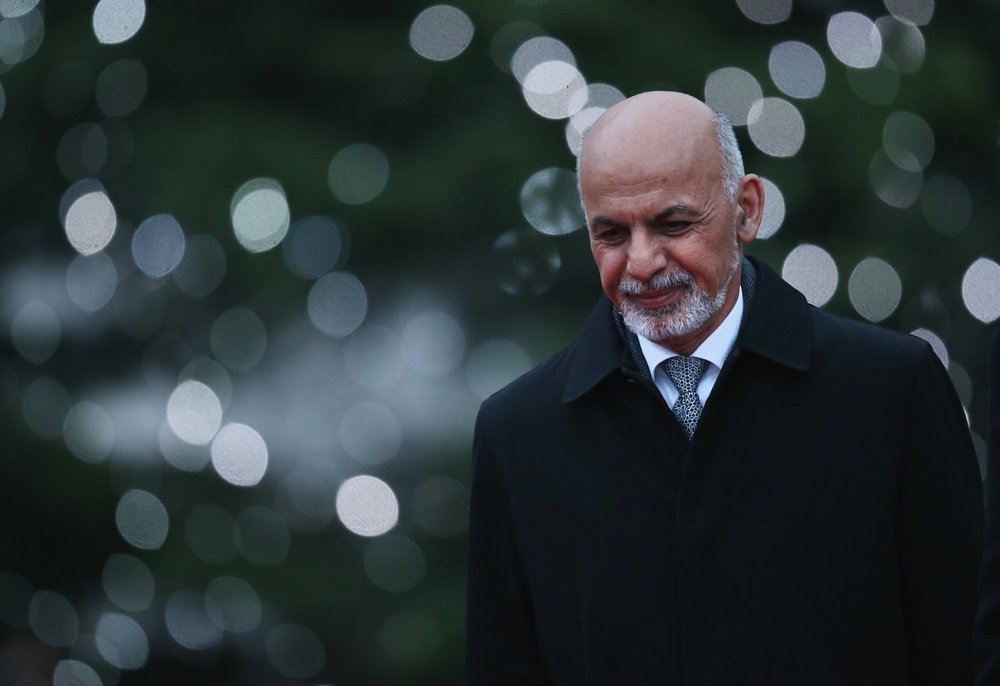Govt, politicians in Afghanistan on the warpath over talks with Taliban

TEHRAN - Afghanistan’s politicians are on the warpath with government over peace talks with the Taliban, a situation that threatens to disrupt the fragile political environment in the run up to general elections in July.
After refusing to hold talks with Afghan officials for very long, the insurgent group has finally agreed to talk to Afghan politicians, excluding President Ashraf Ghani, in Moscow this week, which has created a sense of unease in Kabul’s presidential palace.
President Ghani’s supporters feel the decision of Afghan politicians to hold deliberations with the Taliban, while sidelining the elected Afghan government, will provide legitimacy to the group and undermine the national unity government (NUG), which is already in tatters.
A delegation of Afghan Taliban from its Qatar office led by Mohammad Abbas Stanekzai is expected to hold talks with a motley group of Afghan politicians in Moscow this week, most likely on Tuesday or Wednesday.
Among those who have confirmed participation in the talks includes former president Hamid Karzai, presidential candidate Hanif Atmar, former Balkh governor Ata Mohammad Noor, leader of Hezb e Wahdat Mohammad Mohaqeq, besides others.
Noor tweeted that he would attend the talks “alongside few prominent Afghan leaders”, adding that the talks will be a “pathway towards strengthening peace efforts” in the country. Atmar said he supports Afghan-owned peace talks and will “push for inclusion of Afghan government” in the talks.
While the stage has been set for the high-profile Moscow summit, the political climate in Kabul is not favorable. President Ghani’s supporters believe that if Afghan politicians, many of them Ghani’s rivals in upcoming elections, take part in talks with the Taliban, his government would risk losing credibility and that would adversely affect his re-election bid.
Afghan foreign ministry has termed it a “political drama” and deputy foreign minister Idrees Zaman took to Twitter to denounce the talks. “From the meetings in the lawns of Peshawar’s Governor house to the sittings in Moscow and collective dementia of our political elite. Those who cannot learn from history are doomed to repeat it,” he wrote.
President Ghani’s supporters have accused the opposition leaders of rushing to peace talks with Taliban to push their own political agendas ahead of elections.
Russian government has publicly distanced itself from the talks, but according to reports Russian envoy to Kabul Zamir Kabulov is behind the initiative. Moscow had hosted a multilateral summit on Afghanistan last November, inviting officials from regional countries, besides a Taliban delegation. The talks were hailed as “groundbreaking”.
Pertinently, Taliban has held several rounds of talks with the U.S. government envoy Zalmay Khalilzad in recent months, latest being six-day talks in Qatar last month, following which the two sides reportedly reached an agreement.
The draft of the agreement stipulates 18-month timeline of withdrawal of foreign troops in exchange for assurances that Taliban will prevent al Qaeda and ISIS from using Afghanistan to attack U.S. and its allies.
The agreement, experts believe, is far from realistic. Colin Clarke, research fellow at Soufan Center, was quoted as saying by Think Progress that al Qaeda fighters were embedded with the Taliban.
She further said that if the U.S. was really interested in countering extremism, including al Qaeda, it should first counter Saudi Arabia’s efforts to fund mosques and schools that spread ultra-conservative Wahhabist ideology in the region.
“There’s no will in the current administration to counter the Saudis at all. They’ve been given a free pass,” said Clarke.
Following Qatar talks, President Ghani’s office said the rights of Afghans should not be compromised in the name of peace with the Taliban. The statement said Khalilzad had no authority to discuss the future Afghan administration, referring to reports about possible role for Taliban in the future Afghan government.
There have been reports that the U.S. government has offered a role to the Taliban in the future Afghan administration provided it does not use Afghan territory to attack the U.S.
These reports have created panic in Kabul, with President Ghani’s administration fearing the repeat of failed peace process in 1990s following the withdrawal of Soviet forces from Afghanistan.
“We have the experience of Dr. Najibullah’s peace process, how he was cheated, the UN had given him the peace guarantee, but unfortunately it led to tragedy,” he said last week, clearly expressing his frustration over the unfolding events.
The secret deliberations between the U.S. government and the Taliban, overstepping the elected government in Kabul, have led to resentment not only among Afghan government officials but even young Afghans.
With elections just four months away, President Ghani’s government is staring into the abyss, abandoned inside Afghanistan by powerful politicians and outside Afghanistan by the U.S. government.
Moreover, with Russia’s increased involvement in Afghanistan and its leverage over Taliban, the great rivalry between Washington and Moscow is likely to be played out in Afghanistan again. What that means for peace in the war-ravaged country is not hard to predict.
